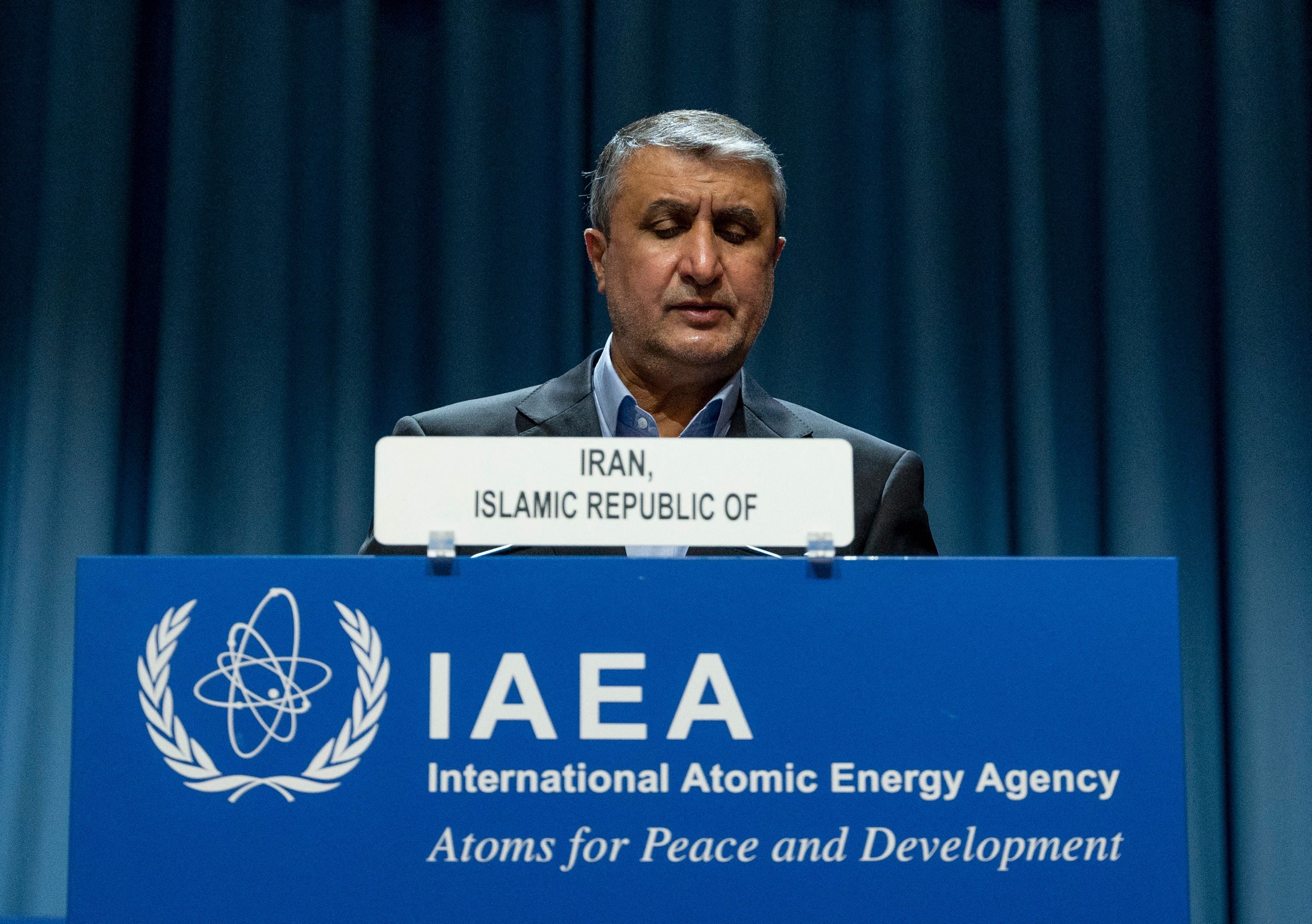Iran can make an atom bomb but it is ‘not on agenda’, country’s nuclear chief says
Western nations have claimed that Iran is getting closer to making a nuclear bomb, an allegation that Tehran has denied

Your support helps us to tell the story
From reproductive rights to climate change to Big Tech, The Independent is on the ground when the story is developing. Whether it's investigating the financials of Elon Musk's pro-Trump PAC or producing our latest documentary, 'The A Word', which shines a light on the American women fighting for reproductive rights, we know how important it is to parse out the facts from the messaging.
At such a critical moment in US history, we need reporters on the ground. Your donation allows us to keep sending journalists to speak to both sides of the story.
The Independent is trusted by Americans across the entire political spectrum. And unlike many other quality news outlets, we choose not to lock Americans out of our reporting and analysis with paywalls. We believe quality journalism should be available to everyone, paid for by those who can afford it.
Your support makes all the difference.Iran’s nuclear chief has said that the middle eastern nation has the technical capability to produce an atomic bomb but does not intend to make the deadly weapon.
Mohammad Eslami, head of the atomic energy organisation of Iran (AEOI), reiterated the stand made by Kamal Kharrazi, who is a senior adviser to supreme leader Ayatollah Ali Khamenei last month.
“As Mr Kharrazi mentioned, Iran has the technical ability to build an atomic bomb, but such a program is not on the agenda,” Mr Eslami said on Monday, according to the semi-official Fars news agency.
The remarks indicate that the Islamic nation may be interested in nuclear weapons, which is a rare statement as the country has long denied such ambitions.
The statement comes just a week after the nuclear chief said that Iran will keep the UN nuclear watchdog’s cameras switched off until a 2015 nuclear deal is restored.
Under the deal, signed in July 2015 between Iran and several nations including the US, Iran was placed under severe restrictions and required to dismantle much of its nuclear programme in return for the lifting of international sanctions.
But in 2018, the Donald Trump administration ditched the deal and slapped tough economic sanctions on Tehran. In response, Iran’s ruling clerics breached the pact’s nuclear restrictions.
“We will not turn on the IAEA [International Atomic Energy Agency] cameras until the other side returns to the nuclear deal,” Mr Eslami said.
He added that Iran will decide about the “cameras added under the nuclear deal after the westerners return to the accord and we are sure they won’t do anything mischievous”.
The chief of the top-most atomic energy body in Iran also said that his country will not address the claims about unexplained uranium traces as asked for by the IAEA as the 2015 deal had cleared Tehran of so-called PMD (possible military dimensions) allegations.
Last week, the spokesperson for Iran’s foreign ministry also accused IAEA chief Rafael Grossi of “unprofessional, unfair and unconstructive views” on Tehran’s nuclear programme.
The global atomic energy body’s chief had alleged that Iran’s nuclear programme was “galloping ahead” and the IAEA has very limited visibility on what is happening.
Western nations have claimed that Iran could be getting closer to making a nuclear bomb, an allegation that Tehran has denied.
It has already enriched uranium up to 60 per cent of fissile purity, far above the 3.67 per cent cap prescribed by the 2015 deal. If enriched up to 90 per cent, uranium can be used to make a nuclear bomb.
Additional reporting by agencies
Join our commenting forum
Join thought-provoking conversations, follow other Independent readers and see their replies
Comments